
Dixinn: The Heartbeat of Conakry
Nestled in the vibrant city of Conakry, Dixinn is a neighborhood brimming with life, culture, and history. As you wander through its bustling streets, you'll be greeted by a kaleidoscope of colors, sounds, and aromas that paint a vivid picture of everyday life in Guinea. From its lively markets to its serene coastal views, Dixinn offers a diverse array of experiences that cater to every type of traveler. Dixinn is home to the University of Conakry, one of the most prestigious institutions in the country. This has turned the neighborhood into a youthful and energetic hub, filled with students, intellectuals, and artists. The influence of the university can be felt in the numerous cafes and bookshops that dot the area, making it an ideal spot for those looking to immerse themselves in the local culture and engage in stimulating conversations. For those interested in history and architecture, Dixinn does not disappoint. The neighborhood is dotted with colonial-era buildings that tell the story of Guinea's past. A visit to the National Museum of Guinea, located in Dixinn, offers a deep dive into the country's rich history and cultural heritage. The museum houses an impressive collection of artifacts, including traditional masks, musical instruments, and historical documents. Food lovers will find Dixinn a paradise of flavors. The local markets and street food stalls offer a variety of dishes that showcase the best of Guinean cuisine. From the spicy and flavorful rice dish 'riz gras' to the sweet and tangy 'bissap' drink, every meal in Dixinn is an adventure for the taste buds.
Local tips in Dixinn
- Visit the National Museum of Guinea for a comprehensive understanding of the country's history and culture.
- Take a stroll through the local markets to experience the vibrant atmosphere and sample traditional Guinean cuisine.
- Spend some time at the University of Conakry's campus to soak in the youthful energy and perhaps engage in a conversation with local students.
- Try the street food; it's not only delicious but also a great way to experience the local flavors.
- Wear comfortable shoes as the streets can be uneven and you might end up walking a lot while exploring.
Dixinn: The Heartbeat of Conakry
Nestled in the vibrant city of Conakry, Dixinn is a neighborhood brimming with life, culture, and history. As you wander through its bustling streets, you'll be greeted by a kaleidoscope of colors, sounds, and aromas that paint a vivid picture of everyday life in Guinea. From its lively markets to its serene coastal views, Dixinn offers a diverse array of experiences that cater to every type of traveler. Dixinn is home to the University of Conakry, one of the most prestigious institutions in the country. This has turned the neighborhood into a youthful and energetic hub, filled with students, intellectuals, and artists. The influence of the university can be felt in the numerous cafes and bookshops that dot the area, making it an ideal spot for those looking to immerse themselves in the local culture and engage in stimulating conversations. For those interested in history and architecture, Dixinn does not disappoint. The neighborhood is dotted with colonial-era buildings that tell the story of Guinea's past. A visit to the National Museum of Guinea, located in Dixinn, offers a deep dive into the country's rich history and cultural heritage. The museum houses an impressive collection of artifacts, including traditional masks, musical instruments, and historical documents. Food lovers will find Dixinn a paradise of flavors. The local markets and street food stalls offer a variety of dishes that showcase the best of Guinean cuisine. From the spicy and flavorful rice dish 'riz gras' to the sweet and tangy 'bissap' drink, every meal in Dixinn is an adventure for the taste buds.
Iconic landmarks you can’t miss
Grande Mosquée de Conakry
Explore the Grande Mosquée de Conakry, Guinea's largest mosque, and immerse yourself in its rich culture and stunning architectural beauty.
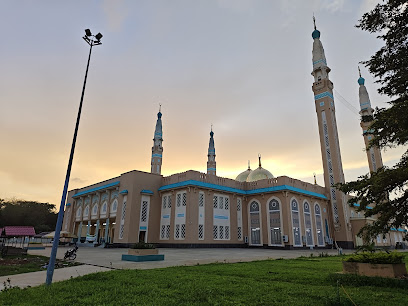
National Museum of Guinea
Discover Guinea's rich heritage at the National Museum of Guinea, where history, art, and culture come together to tell an inspiring story.
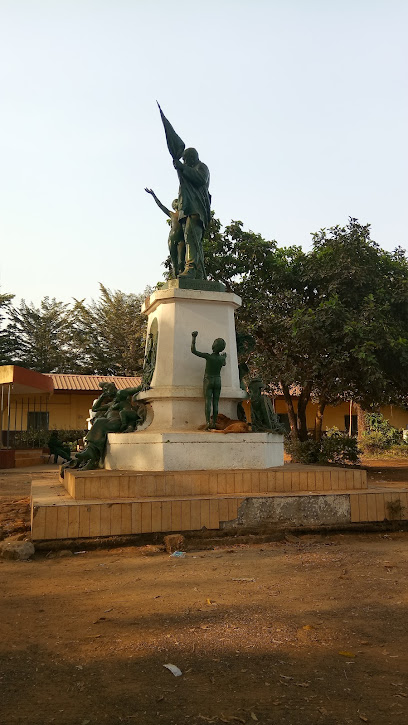
Palais du Peuple
Explore the grandeur of Palais du Peuple, a historic symbol of governance in Conakry, showcasing the rich cultural heritage of Guinea.
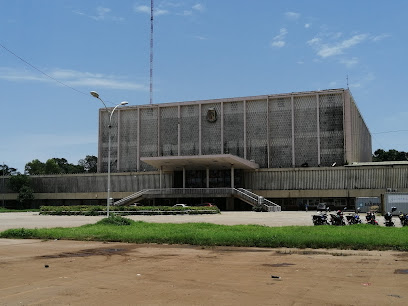
Dixinn Bluezone
Experience the lively atmosphere of Dixinn Bluezone, a premier recreation center in Conakry, Guinea, where culture, food, and fun blend seamlessly.
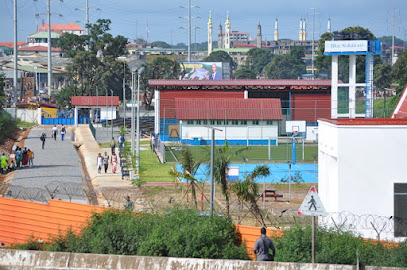
Dixinn Terasse
Explore the enchanting world of bookbinding at Dixinn Terasse, a unique gem in Conakry, Guinea, where literature and craftsmanship come to life.
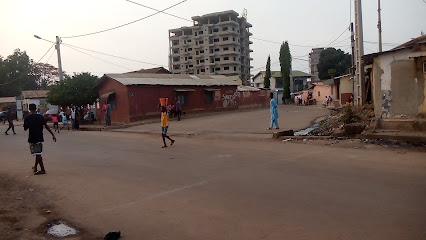
植物園
Explore the lush landscapes and vibrant flora of the Botanical Garden in Conakry, a serene escape in the heart of Guinea's capital.
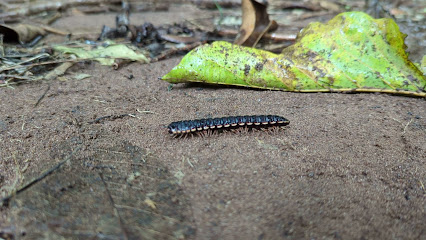
MOSQUEE DIXINN CORNICHE
Experience the architectural beauty and spiritual tranquility at Mosquee Dixinn Corniche in Conakry, Guinea.
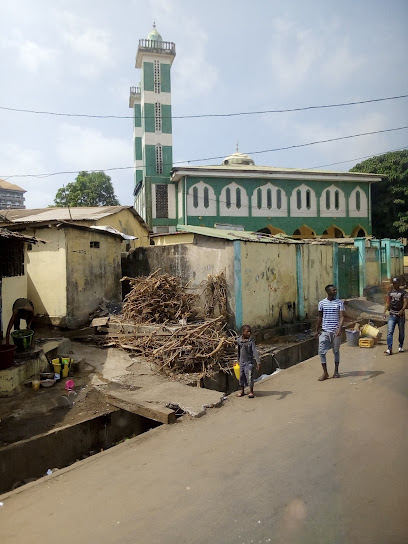
Oasis Dixinn, Conakry
Oasis Dixinn, Conakry: A vibrant shopping mall blending local culture and modern retail experiences, perfect for tourists and locals alike.

Mosquee Dixinn Oasis
Discover the architectural beauty and spiritual serenity of Mosquee Dixinn Oasis in Conakry, a must-visit landmark reflecting Guinea's rich culture.

Polyclinique de Dixinn
Experience quality healthcare at Polyclinique de Dixinn, Conakry's trusted medical clinic for travelers and locals alike, ensuring your health is in expert hands.
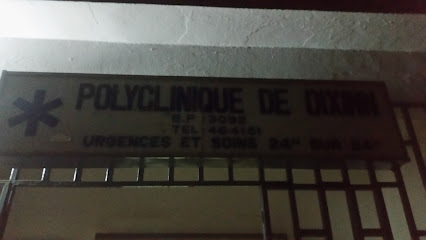
Dixinn Gate
Explore the vibrant educational culture and community life at Dixinn Gate in Conakry, Guinea, a unique destination for cultural immersion.
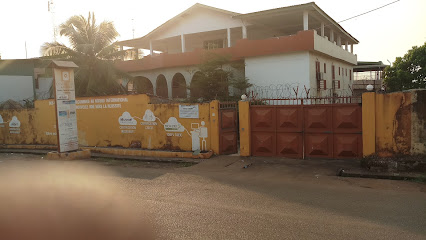
Jardins du 2 Octobre
Discover the tranquil beauty of Jardins du 2 Octobre in Conakry, a lush garden retreat ideal for relaxation and cultural exploration.
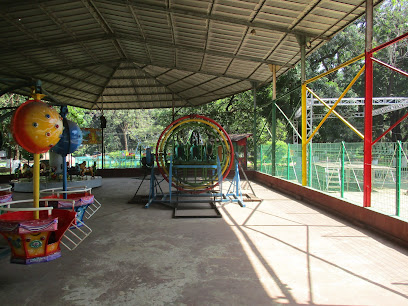
Mairie de DIXINN
Explore the Mairie de DIXINN in Conakry, a captivating government office that embodies the rich history and vibrant culture of Guinea's capital.

Cimetière de Dixinn
Explore Cimetiere de Dixinn in Conakry for a serene cultural experience, where history, nature, and remembrance beautifully converge.

Dixinn oasis
Explore the essence of Guinea at Dixinn Oasis, a unique home goods store in Conakry offering exquisite local crafts and decor.

Unmissable attractions to see
Grande Mosquée de Conakry
Explore the Grande Mosquée de Conakry, a stunning architectural gem and cultural hub in Guinea's vibrant capital.
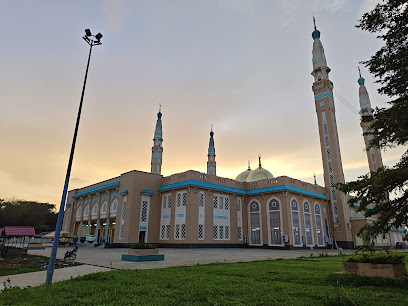
Bluezone de Kaloum
Experience the thrill of entertainment at Bluezone de Kaloum, Conakry's top amusement center, perfect for families and fun-seekers alike.
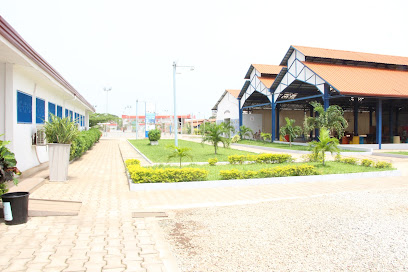
Rocky Beach Kipé
Discover the breathtaking views and tranquil atmosphere of Rocky Beach Kipé, a hidden gem on the coast of Conakry, Guinea.
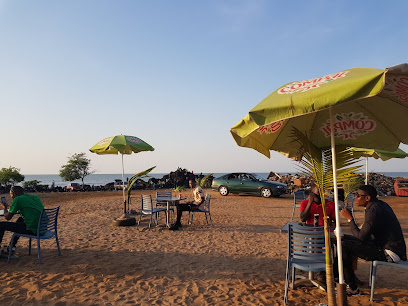
植物園
Experience the tranquility of Conakry's Botanical Garden, a lush retreat filled with diverse plant life and serene walking paths.
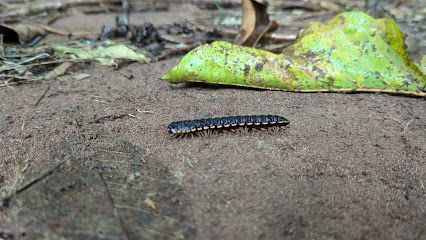
Jardins du 2 Octobre
Explore the lush landscapes and tranquil beauty of Jardins du 2 Octobre in Conakry, a perfect escape for nature lovers and culture enthusiasts alike.
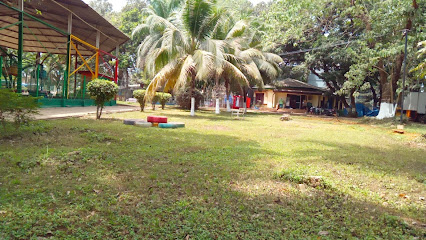
Dixinn
Discover the serene beauty of Dixinn Mosque in Conakry, Guinea, a cultural landmark and a peaceful retreat for spiritual reflection.

Essential places to dine
Restaurant fondis
Experience authentic Guinean flavors at Restaurant Fondis in Conakry's Kaloum Peninsula – where every meal is a celebration of local culture.
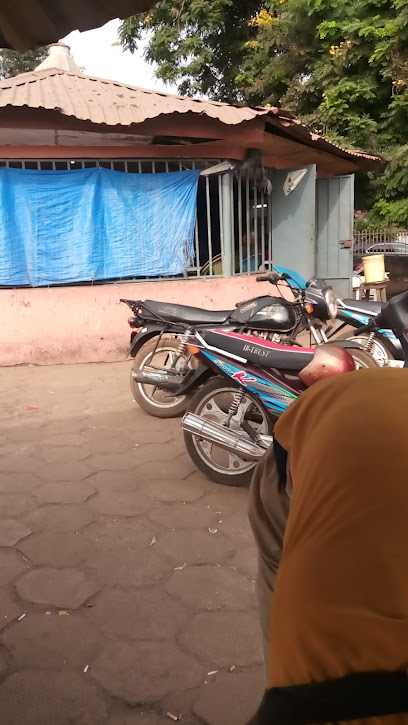
Restaurant Penor
Discover authentic Guinean flavors at Restaurant Penor in Conakry – a must-visit destination for food lovers exploring West Africa.
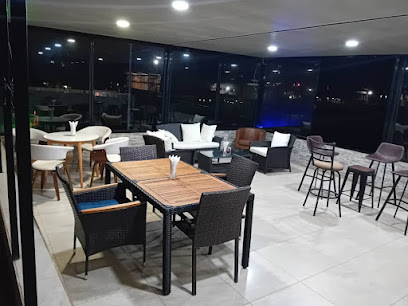
RESTAURANT UNIQUE
Experience authentic Guinean cuisine at Restaurant Unique in Conakry - where every dish tells a story.
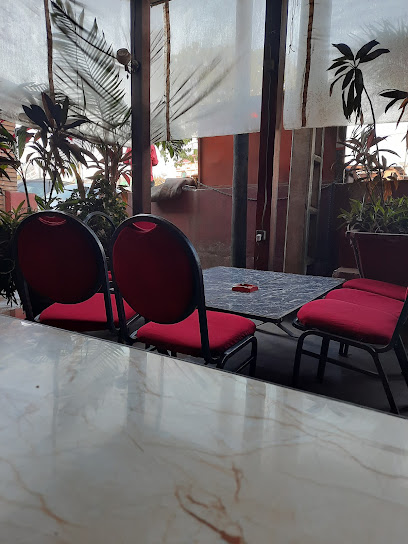
Restaurant Hotel de l'Université
Experience the essence of Guinean cuisine at Restaurant Hotel de l'Université in Conakry—where every meal tells a story.

Restaurant bon plat
Experience authentic Guinean flavors at Restaurant Bon Plat in Conakry's Kaloum Peninsula - a culinary journey awaits.
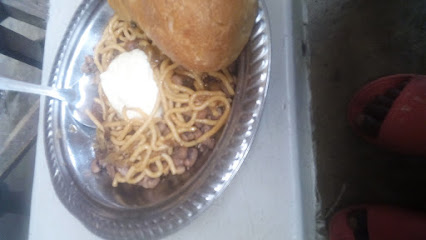
DOU KEBE Restaurant et Boutique
Discover the flavors of Guinea at DOU KEBE Restaurant et Boutique in Conakry—where authentic cuisine meets cultural charm.
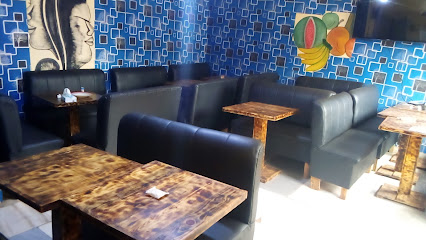
Restaurant
Discover authentic Guinean cuisine at this renowned African restaurant in Conakry – a true taste of West Africa.
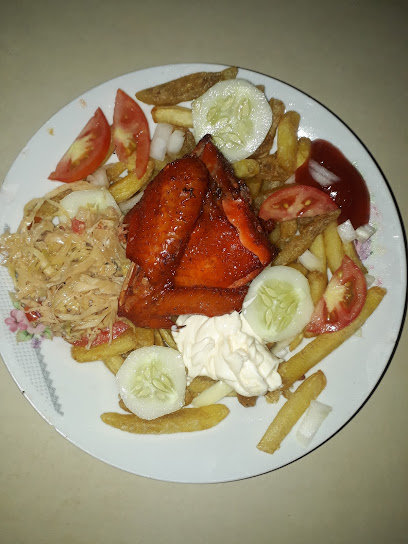
baobab de bamba
Discover the flavors of Africa at Baobab de Bamba in Conakry - a culinary journey through traditional dishes and vibrant culture.
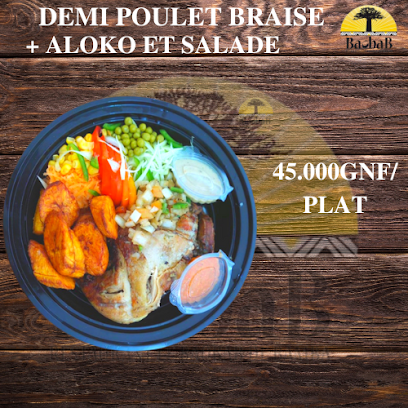
La Croisière
Discover authentic Guinean cuisine at La Croisière in Port II - where every meal is a celebration of local flavors and warm hospitality.

Kebab 224
Discover Kebab 224 in Conakry - where delicious kebabs meet vibrant fast food culture for an unforgettable culinary experience.

Markets, malls and hidden boutiques
Arabinènè Marketplace
Explore the vibrant Arabinènè Marketplace in Conakry, Guinea, a shopping haven filled with unique gifts, clothing, and local culture.

DIKOULE
Discover unique dresses at Dikoule in Conakry, reflecting the vibrant spirit of Guinea's fashion culture and offering styles for every occasion.
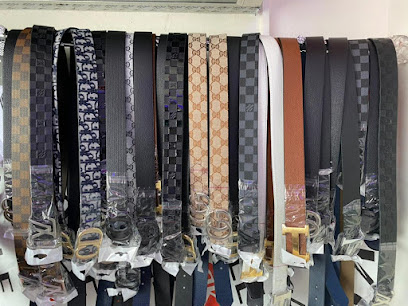
Mariama Oumou Boutique
Explore the stylish offerings of Mariama Oumou Boutique in Conakry, where local fashion meets modern elegance, perfect for every occasion.
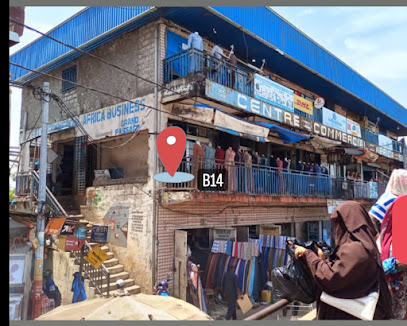
DixinnMaguiShp
Discover the art of fragrance at Dixinn Magui in Conakry, a perfume store offering exquisite scents that blend local culture with international elegance.

Dixinn oasis
Explore the unique home goods at Dixinn Oasis, where local craftsmanship meets vibrant culture in the heart of Conakry, Guinea.

MT Shop
Explore MT Shop in Conakry for unique gifts and local crafts that capture the essence of Guinea's rich culture and heritage.
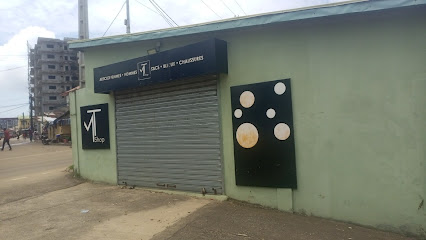
Djouly-chic shop
Discover the essence of Guinea's craftsmanship at Djouly-chic shop, where home goods reflect local culture and modern design in Conakry.

Angel Boutique
Explore the vibrant culture of Guinea through unique gifts and local crafts at Angel Boutique in Conakry.

Boutique Mdbshop
Discover the vibrant shopping experience at Boutique Mdbshop in Conakry, where local culture meets diverse retail options.
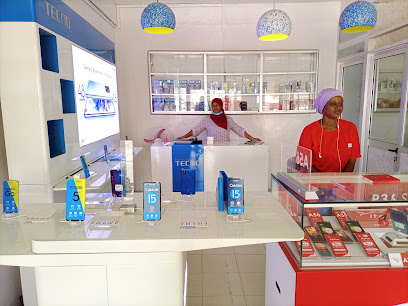
Chez Mame Shop
Explore unique local crafts and treasures at Chez Mame Shop, a charming boutique in the heart of Conakry, Guinea.
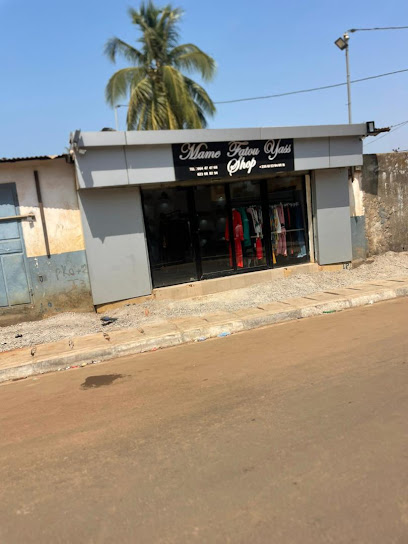
Essential bars & hidden hideouts
CODE BAR
Experience vibrant nightlife and exquisite dining at CODE BAR, Conakry's premier lounge that captures the essence of Guinean culture.
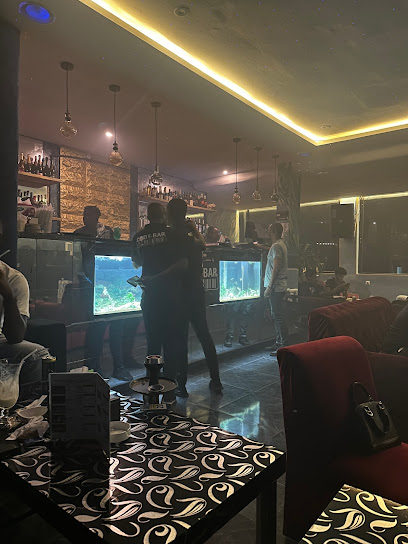
Océan's Lounge
Discover the vibrant nightlife at Océan's Lounge in Conakry, Guinea, where style meets local culture and the cocktails flow freely.
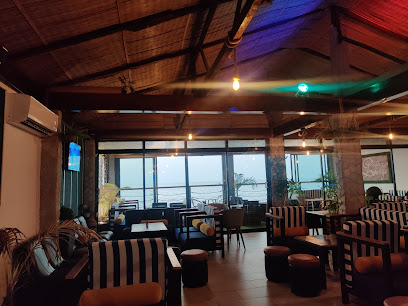
Maquis Tiktok
Discover the lively atmosphere of Maquis Tiktok in Taouyah, Conakry, where local flavors meet vibrant nightlife in an unforgettable pub experience.

cafe ben
Experience the warm ambiance and local flavors at Café Ben, your cozy retreat in Conakry, Guinea, for a relaxing evening.
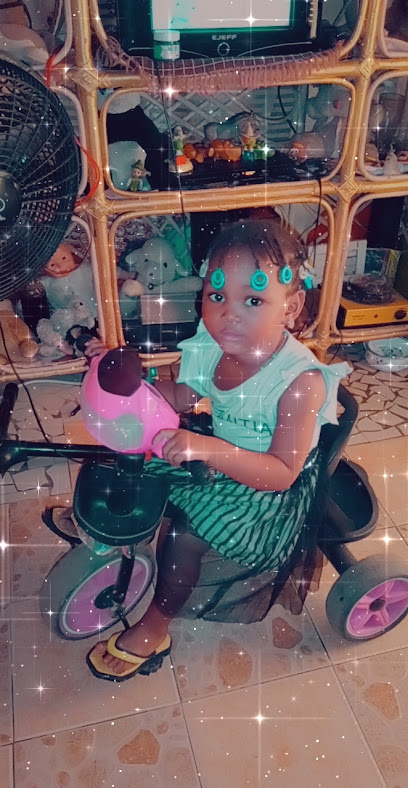
Nigth Club bluetooth
Unleash your nightlife spirit at Night Club Bluetooth, where music, dance, and vibrant culture converge in the heart of Conakry.

3615 Night Club
Discover the pulsating nightlife of Conakry at 3615 Night Club, where music and dance come alive in an unforgettable atmosphere.
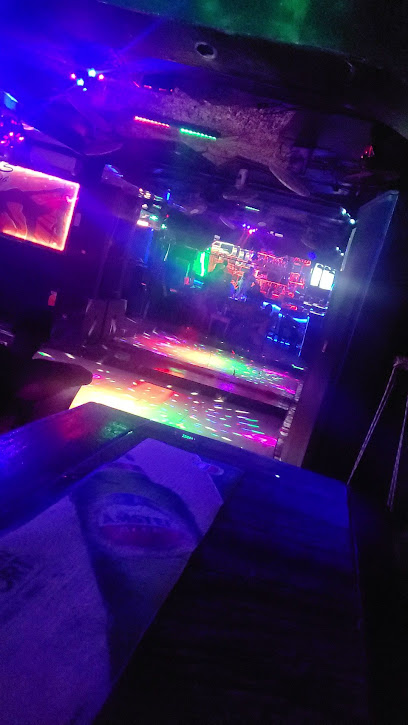
OASIS LOUNGE BAR & RESTAURANT
Discover a tranquil dining experience at Oasis Lounge Bar & Restaurant in Conakry, blending local flavors with a cozy atmosphere.
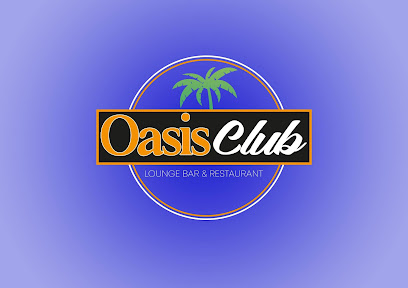
The Best Lounge & Bar
Experience the vibrant nightlife and exquisite cocktails at The Best Lounge & Bar in Conakry, a perfect blend of relaxation and entertainment.
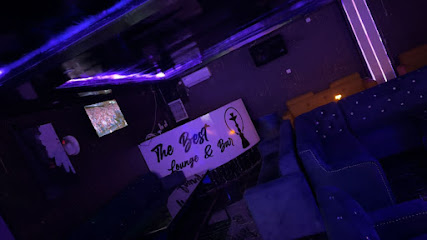
Chez Gilbert (Bistrot)
Experience the charm of French cuisine at Chez Gilbert, a delightful bistro in the heart of Conakry, Guinea, where every meal tells a story.

Domino Lounge
Discover the lively nightlife of Conakry at Domino Lounge, a vibrant bar offering refreshing cocktails and a welcoming atmosphere.

Local Phrases
-
- HelloSalam
[sa-laam] - GoodbyeDeedei
[dee-dee] - YesEe
[ee] - NoAye
[aye] - Please/You're welcomeMɔnkɛ
[mon-keh] - Thank youɛkɔsi
[eh-koh-see] - Excuse me/SorrySaaɗa
[sah-dah] - How are you?I nɛ kɛlɛn?
[ee neh keh-lehn?] - Fine. And you?A bɛɛn. Oo?
[ah behn. oh?] - Do you speak English?I ni taa tye Iŋgili?
[ee nee tah tyeh een-gi-lee?] - I don't understandA mɔgɔ
[ah moh-goh]
- HelloSalam
-
- I'd like to see the menu, pleaseMɔgɔ fɔɔgu taa menu, i taa kɔ
[moh-goh foh-goo tah meh-noo, ee tah koh] - I don't eat meatA n bɔ yuɲɛ
[ah ne boh yoo-nyeh] - Cheers!ŋgaɓa
[ngah-bah] - I would like to pay, pleaseMɔgɔ taa baarɛ, i taa kɔ
[moh-goh tah bah-reh, ee tah koh]
- I'd like to see the menu, pleaseMɔgɔ fɔɔgu taa menu, i taa kɔ
-
- Help!A bɔ ba
[ah boh bah] - Go away!Kɔ
[koh] - Call the Police!I taa kɔndɔ
[ee tah kohn-doh] - Call a doctor!I taa kɔndɔ taa kɔ lɔ
[ee tah kohn-doh tah koh loh] - I'm lostA bɛɛn fɔɔ
[ah behn foh] - I'm illA bɛɛn ti
[ah behn tee]
- Help!A bɔ ba
-
- I'd like to buy...Mɔgɔ taa kɛnɛ ...
[moh-goh tah keh-neh ...] - I'm just lookingA bɛɛn dɔn kɛnɛ
[ah behn dohn keh-neh] - How much is it?I kɛnɛnɛ bɛ
[ee keh-neh-neh beh] - That's too expensiveKɛnɛnɛ bɛ mɔgɔ
[keh-neh-neh beh moh-goh] - Can you lower the price?I taa kɛnɛ tɛ
[ee tah keh-neh teh]
- I'd like to buy...Mɔgɔ taa kɛnɛ ...
-
- What time is it?N bɔrɔgɔ?
[neh boh-roh-goh?] - It's one o'clockN bɔrɔgɔ kelen
[neh boh-roh-goh keh-lehn] - Half past (10)Kelen fɔɔ
[keh-lehn foh] - MorningFɔlɔ
[foh-loh] - AfternoonFɔlɔgu
[foh-loh-goo] - EveningFɔgɔ
[foh-goh] - YesterdayKilen
[kee-lehn] - TodayKɛlɛ
[keh-leh] - TomorrowSɔgɔ
[soh-goh] - 1Kelen
[keh-lehn] - 2Fɔ
[foh] - 3Saba
[sah-bah] - 4Nani
[nah-nee] - 5Dɔrɔ
[doh-roh] - 6Wɛlɛ
[weh-leh] - 7Sɔnɔ
[soh-noh] - 8Saba fɔ
[sah-bah foh] - 9Saba dɔrɔ
[sah-bah doh-roh] - 10Fɔ kelen
[foh keh-lehn]
- What time is it?N bɔrɔgɔ?
-
- Where's a/the...?N bɔ ... ye?
[neh boh ... yeh?] - What's the address?N bɔ dɛmɔgɔ ye?
[neh boh deh-moh-goh yeh?] - Can you show me (on the map)?I taa kɔnɔ mɔgɔ (tɛ kaarta)?
[ee tah kohn-knoh moh-goh (teh kah-r-tah)?] - When's the next (bus)?N bɔ ... kalɔ?
[neh boh ... kah-loh?] - A ticket (to ....)I taa tɛkɛ (kɛ ...)
[ee tah teh-keh (keh ...)]
- Where's a/the...?N bɔ ... ye?
History of Dixinn
-
Dixinn, like much of Conakry, has its roots in the colonial era when Guinea was part of French West Africa. Established as a residential area for French administrators and expatriates, Dixinn developed its infrastructure during the late 19th and early 20th centuries. The neighborhood's growth was closely linked to the expansion of Conakry as the capital of Guinea, serving as a hub for administrative and commercial activities.
-
The 1958 referendum, which resulted in Guinea becoming the first French colony to gain independence, marked a significant turning point for Dixinn. The neighborhood became a focal point for national pride and political activism, reflecting the aspirations of the Guinean people. Many prominent figures in Guinea's political landscape emerged from this area, contributing to the development of a unique national identity rooted in the rich cultural heritage of the region.
-
Dixinn is recognized for its diverse cultural landscape, which includes various ethnic groups such as the Malinke, Susu, and Fulani. This diversity is reflected in the local cuisine, music, and festivals. The neighborhood hosts vibrant markets and cultural events that celebrate Guinean traditions, showcasing the resilience and creativity of its inhabitants in the face of historical challenges.
-
As Conakry expanded, Dixinn underwent rapid urbanization, leading to both growth and challenges. Over the last few decades, the area has faced issues related to infrastructure, housing, and public services. Efforts to improve living conditions and promote sustainable development in Dixinn have become a priority for local authorities, aiming to preserve the neighborhood's cultural heritage while adapting to modern needs.
-
In recent years, there has been a renewed interest in the cultural heritage of Dixinn, with initiatives aimed at promoting local art, music, and traditions. Cultural centers and community organizations have emerged, fostering creative expression and collaboration among residents. This cultural revival is not only preserving the history of Dixinn but also reinforcing its identity as a dynamic and integral part of Conakry's urban tapestry.
Dixinn Essentials
-
Dixinn is accessible from various neighborhoods in Conakry. If you're arriving from the city center, you can take a taxi or a shared taxi (clando) which are abundant and relatively inexpensive. The journey typically takes around 15-30 minutes depending on traffic. From Kaloum, you can also opt for a local bus that connects to Dixinn. For those arriving by air, Conakry International Airport is approximately 15 km away, and taxis are available for hire to take you directly to Dixinn.
-
Dixinn is best explored on foot, as many local attractions and markets are within walking distance. For longer distances, you can use local taxis, clandos, or motorcycles (zémidjans) which are a popular and quick mode of transport. Public buses also operate in the area, but they may not be the most reliable option for tourists. Cycling is an option, but be cautious as traffic can be chaotic.
-
Dixinn is generally safe, but like any urban area, it's wise to remain vigilant. Be cautious in less populated areas, especially at night. Avoid displaying valuables in public and be aware of pickpockets in crowded places. Areas such as the outskirts of Dixinn may experience higher crime rates. Always trust your instincts and consider asking locals for advice on which areas to avoid.
-
In case of an emergency, dial 117 for police assistance and 118 for medical emergencies. Local hospitals and clinics are available in Conakry, but it’s advisable to have travel insurance that covers medical evacuations. For minor health issues, pharmacies are scattered throughout the neighbourhood. Always keep a list of emergency contacts handy.
-
Fashion: Do dress modestly, especially in less touristy areas. Avoid revealing clothing. Religion: Do respect local customs and practices, particularly when visiting mosques. Public Transport: Do offer your seat to elderly passengers. Don't engage in loud conversations or eat while using public transport. Greetings: Do greet with a handshake and a smile, and a slight bow of the head shows respect. Eating & Drinking: Do try local cuisine and accept food offerings. Don't refuse hospitality, as it can be seen as disrespectful.
-
To experience Dixinn like a local, visit the vibrant markets such as the Dixinn Market for fresh produce and local goods. Engage with local vendors and try street food delicacies. Also, don't miss the nearby beach areas for a relaxing afternoon. Learning a few phrases in French or the local languages can greatly enhance your interactions with residents.
Trending Landmarks in Dixinn
Nearby Cities to Dixinn
-
Things To Do in Port Loko
-
Things To Do in Magburaka
-
Things To Do in Quebo
-
Things To Do in Bonthe
-
Things To Do in Buba
-
Things To Do in Pujehun
-
Things To Do in Faranah
-
Things To Do in Kenema
-
Things To Do in Bissau
-
Things To Do in Canchungo
-
Things To Do in Voinjama
-
Things To Do in Janjanbureh
-
Things To Do in Soma
-
Things To Do in Monrovia
-
Things To Do in Farafenni






